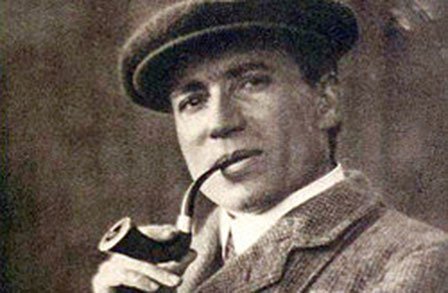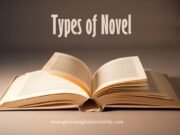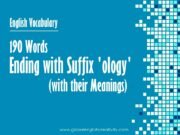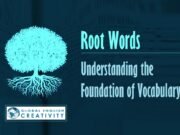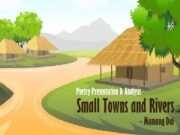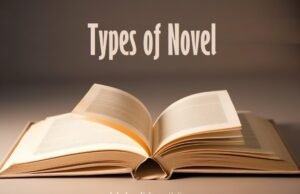
A GREAT TIME
Sweet Chance, that led my steps abroad,
Beyond the town, where wild flowers grow —
A rainbow and a cuckoo, Lord,
How rich and great the times are now!
Know, all ye sheep
And cows, that keep
On staring that I stand so long
In grass that’s wet from heavy rain —
A rainbow and a cuckoo’s song
May never come together again;
May never come
This side the tomb. |
|

A GREETING
Good morning, Life–and all
Things glad and beautiful.
My pockets nothing hold,
But he that owns the gold,
The Sun, is my great friend–
His spending has no end.
Hail to the morning sky,
Which bright clouds measure high;
Hail to you birds whose throats
Would number leaves by notes;
Hail to you shady bowers,
And you green field of flowers.
Hail to you women fair,
That make a show so rare
In cloth as white as milk–
Be’t calico or silk:
Good morning, Life–and all
Things glad and beautiful.
|
|

A MAY MORNING
The sky is clear,
The sun is bright;
The cows are red,
The sheep are white;
Trees in the meadows
Make happy shadows.
Birds in the hedge
Are perched and sing;
Swallows and larks
Are on the wing:
Two merry cuckoos
Are making echoes.
Bird and the beast
Have the dew yet;
My road shines dry,
Theirs bright and wet:
Death gives no warning,
On this May morning.
I see no Christ
Nailed on a tree,
Dying for sin;
No sin I see:
No thoughts for sadness,
All thoughts for gladness.
|

A PLAIN LIFE
No idle gold — since this fine sun, my friend,
Is no mean miser, but doth freely spend.
No precious stones — since these green mornings show,
Without a charge, their pearls where’er I go.
No lifeless books — since birds with their sweet tongues
Will read aloud to me their happier songs.
No painted scenes — since clouds can change their skies
A hundred times a day to please my eyes.
No headstrong wine — since, when I drink, the spring
Into my eager ears will softly sing.
No surplus clothes — since every simple beast
Can teach me to be happy with the least.
|
|
 A STRANGE CITY A STRANGE CITY
A wondrous city, that had temples there
More rich than that one built by David’s son,
Which called forth Ophir’s gold, when Israel
Made Lebanon half naked for her sake.
I saw white towers where so-called traitors died–
True men whose tongues were bells to honest hearts,
And rang out boldly in false monarch’s ears.
Saw old black gateways, on whose arches crouched
Stone lions with their bodies gnawed by age.
I looked with awe on iron gates that could
Tell bloody stones if they had our tongues.
I saw tall mounted spires shine in the sun,
That stood amidst their army of low streets.
I saw in buildings pictures, statues rare,
Made in those days when Rome was young, and new
In marble quarried from Carrara’s hills;
Statues by sculptors that could almost make
Fine cobwebs out of stone–so light they worked.
Pictures that breathe in us a living soul,
Such as we seldom feel come from that life
The artist copies. Many a lovely sight–
Such as the half sunk barge with bales of hay,
Or sparkling coals–employed my wondering eyes.
I saw old Thames, whose ripples swarmed with stars
Bred by the sun on that fine summer’s day;
I saw in fancy fowl and green banks there,
And Liza’s barge rowed past a thousand swans.
I walked in parks and heard sweet music cry
In solemn courtyards, midst the men-at-arms;
Which suddenly would leap those stony walls
And spring up with loud laughter into trees.
I walked in busy streets where music oft
Went on the march with men; and ofttimes heard
The organ in cathedral, when the boys
Like nightingales sang in that thunderstorm;
The organ, with its rich and solemn tones–
As near a God’s voice as a man conceives;
Nor ever dreamt the silent misery
That solemn organ brought to homeless men.
I heard the drums and soft brass instruments,
Led by the silver cornets clear and high–
Whose sounds turned playing children into stones.
I saw at night the City’s lights shine bright,
A greater milky way; how in its spell
It fascinated with ten thousand eyes;
Like those sweet wiles of an enchantress who
Would still detain her knight gone cold in love;
It was an iceberg with long arms unseen,
That felt the deep for vessels far away.
All things seemed strange, I stared like any child
That pores on some old face and sees a world
Which its familiar granddad and his dame
Hid with their love and laughter until then.
My feet had not yet felt the cruel rocks
Beneath the pleasant moss I seemed to tread.
But soon my ears grew weary of that din,
My eyes grew tired of all that flesh and stone;
And, as a snail that crawls on a smooth stalk,
Will reach the end and find a sharpened thorn–
So did I reach the cruel end at last.
I saw the starving mother and her child,
Who feared that Death would surely end its sleep,
And cursed the wolf of Hunger with her moans.
And yet, methought, when first I entered there,
Into that city with my wondering mind,
How marvellous its many sights and sounds;
The traffic with its sound of heavy seas
That have and would again unseat the rocks.
How common then seemed Nature’s hills and fields
Compared with these high domes and even streets,
And churches with white towers and bodies black.
The traffic’s sound was music to my ears;
A sound of where the white waves, hour by hour,
Attack a reef of coral rising yet;
Or where a mighty warship in a fog,
Steams into a large fleet of little boats.
Aye, and that fog was strange and wonderful,
That made men blind and grope their way at noon.
I saw that City with fierce human surge,
With millions of dark waves that still spread out
To swallow more of their green boundaries.
Then came a day that noise so stirred my soul,
I called them hellish sounds, and thought red war
Was better far than peace in such a town.
To hear that din all day, sometimes my mind
Went crazed, and it seemed strange, as I were lost
In some vast forest full of chattering apes.
How sick I grew to hear that lasting noise,
And all those people forced across my sight,
Knowing the acres of green fields and woods
That in some country parts outnumbered men;
In half an hour ten thousand men I passed–
More than nine thousand should have been green trees.
There on a summer’s day I saw such crowds
That where there was no man man’s shadow was;
Millions all cramped together in one hive,
Storing, methought, more bitter stuff than sweet.
The air was foul and stale; from their green homes
Young blood had brought its fresh and rosy cheeks,
Which soon turned colour, like blue streams in flood.
Aye, solitude, black solitude indeed,
To meet a million souls and know not one;
This world must soon grow stale to one compelled
To look all day at faces strange and cold.
Oft full of smoke that town; its summer’s day
Was darker than a summer’s night at sea;
Poison was there, and still men rushed for it,
Like cows for acorns that have made them sick.
That town was rich and old; man’s flesh was cheap,
But common earth was dear to buy one foot.
If I must be fenced in, then let my fence
Be some green hedgerow; under its green sprays,
That shake suspended, let me walk in joy–
As I do now, in these dear months I love.
|
|
 A WOMAN’S CHARM A WOMAN’S CHARM
My purse is yours, Sweet Heart, for I
Can count no coins with you close by;
I scorn like sailors them, when they
Have drawn on shore their deep-sea pay;
Only my thoughts I value now,
Which, like the simple glowworms, throw
Their beams to greet thee bravely, Love–
Their glorious light in Heaven above.
Since I have felt thy waves of light,
Beating against my soul, the sight
Of gems from Afric’s continent
Move me to no great wonderment.
Since I, Sweet Heart, have known thine hair,
The fur of ermine, sable, bear,
Or silver fox, for me can keep
No more to praise than common sheep.
Though ten Isaiahs’ souls were mine,
They could not sing such charms as thine.
Two little hands that show with pride,
Two timid, little feet that hide;
Two eyes no dark Senoras show
Their burning like in Mexico;
Two coral gates wherein is shown
Your queen of charms, on a white throne;
Your queen of charms, the lovely smile
That on its white throne could beguile
The mastiff from his gates in hell;
Who by no whine or bark could tell
His masters what thing made him go–
And countless other charms I know.
October’s hedge has far less hues
Than thou hast charms from which to choose.
|
|
 ALE ALE
Now do I hear thee weep and groan,
Who hath a comrade sunk at sea?
Then quaff thee of my good old ale,
And it will raise him up for thee;
Thoul’t think as little of him then
As when he moved with living men.
If thou hast hopes to move the world,
And every effort it doth fail,
Then to thy side call Jack and Jim,
And bid them drink with thee good ale;
So may the world, that would not hear,
Perish in hell with all your care.
One quart of good ale, and I
Feel then what life immortal is:
The brain is empty of all thought,
The heart is brimming o’er with bliss;
Time’s first child, Life, doth live; but Death,
The second, hath not yet his breath.
Give me a quart of good old ale,
Am I a homeless man on earth?
Nay, I want not your roof and quilt,
I’ll lie warm at the moon’s cold hearth;
No grumbling ghost to grudge my bed,
His grave, ha! ha! holds up my head.
|
|
 ALL IN JUNE ALL IN JUNE
A week ago I had a fire
To warm my feet, my hands and face;
Cold winds, that never make a friend,
Crept in and out of every place.
Today the fields are rich in grass,
And buttercups in thousands grow;
I’ll show the world where I have been–
With gold-dust seen on either shoe.
Till to my garden back I come,
Where bumble-bees for hours and hours
Sit on their soft, fat, velvet bums,
To wriggle out of hollow flowers.
|
|
 AN EARLY LOVE AN EARLY LOVE
Ah, sweet young blood, that makes the heart
So full of joy, and light,
That dying children dance with it
From early morn till night.
My dreams were blossoms, hers the fruit,
She was my dearest care;
With gentle hand, and for it, I
Made playthings of her hair.
I made my fingers rings of gold,
And bangles for my wrist;
You should have felt the soft, warm thing
I made to glove my fist.
And she should have a crown, I swore,
With only gold enough
To keep together stones more rich
Than that fine metal stuff.
Her golden hair gave me more joy
Than Jason’s heart could hold,
When all his men cried out–Ah, look!
He has the Fleece of Gold!
|
|
 APRIL’S CHARM APRIL’S CHARM
When April scatters charms of primrose gold
Among the copper leaves in thickets old,
And singing skylarks from the meadows rise,
To twinkle like black stars in sunny skies;
When I can hear the small woodpecker ring
Time on a tree for all the birds that sing;
And hear the pleasant cuckoo, loud and long —
The simple bird that thinks two notes a song;
When I can hear the woodland brook, that could
Not drown a babe, with all his threatening mood;
Upon these banks the violets make their home,
And let a few small strawberry blossoms come:
When I go forth on such a pleasant day,
One breath outdoors takes all my cares away;
It goes like heavy smoke, when flames take hold
Of wood that’s green and fill a grate with gold.
|
|
 APRIL’S LAMBS APRIL’S LAMBS
Though I was born in April’s prime,
With many another lamb,
Yet, thinking now of all my years,
What am I but a tough old ram?
“No woman thinks of years,” said she,
“Or any tough old rams,
When she can hear a voice that bleats
As tenderly as any lamb’s.”
|
